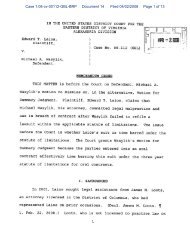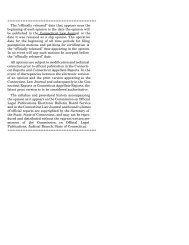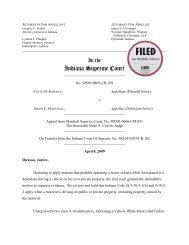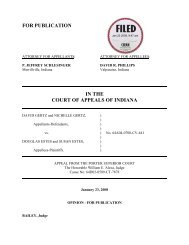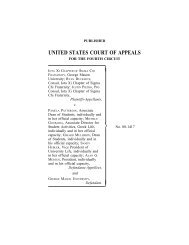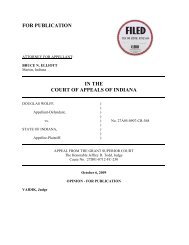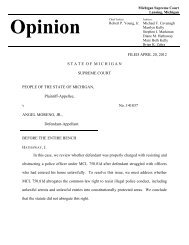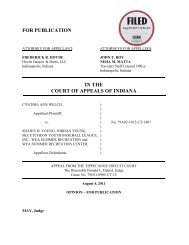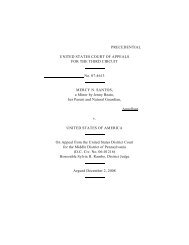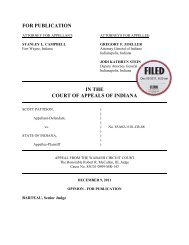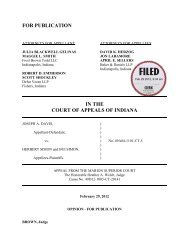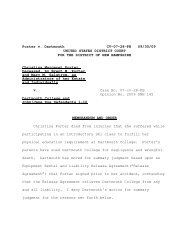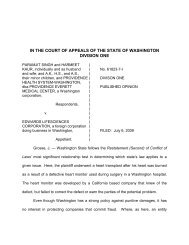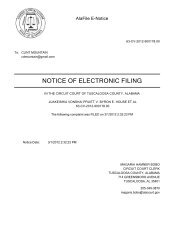IN THE COURT OF APPEAL OF THE STATE OF ... - FindLaw
IN THE COURT OF APPEAL OF THE STATE OF ... - FindLaw
IN THE COURT OF APPEAL OF THE STATE OF ... - FindLaw
Create successful ePaper yourself
Turn your PDF publications into a flip-book with our unique Google optimized e-Paper software.
presented, (4) demonstrating a bias towards Dee, and (5) awarding costs greater<br />
than $51,422.85. We consider these arguments seriatim.<br />
1. Exclusion of Expert Testimony<br />
Dee argues the trial court erred in excluding the testimony of Ordog, Heuser,<br />
and Gutierrez regarding “causation of Dee‟s symptoms, including brain damage as<br />
a result of her exposure to . . . toxic mold.” The purpose of the excluded expert<br />
testimony was to show that “PCS‟s negligence in allowing the growth of the toxic<br />
mold was a substantial factor in directly and proximately causing [her] brain<br />
damage.” We find no abuse of discretion in excluding the evidence and further<br />
conclude that, even if there was error, it was not prejudicial.<br />
a. Dee Demonstrates No Abuse of Discretion<br />
We review for abuse of discretion the trial court‟s decision to exclude<br />
evidence under section 801 on the grounds that there is no reasonable basis for the<br />
opinion. (Lockheed Litigation Cases (2004) 115 Cal.App.4th 558, 563.) Section<br />
801 provides: “If a witness is testifying as an expert, his testimony in the form of<br />
an opinion is limited to such an opinion as is . . . [] . . . [] (b) Based on matter<br />
(including his special knowledge, skill, experience, training, and education)<br />
perceived by or personally known to the witness or made known to him at or<br />
before the hearing, whether or not admissible, that is of a type that reasonably may<br />
be relied upon by an expert in forming an opinion upon the subject to which his<br />
testimony relates, unless an expert is precluded by law from using such matter as a<br />
basis for his opinion.”<br />
“[E]ven when the witness qualifies as an expert, he or she does not possess a<br />
carte blanche to express any opinion within the area of expertise. [Citation.] For<br />
example, an expert‟s opinion based on assumptions of fact without evidentiary<br />
support . . . or on speculative or conjectural factors . . . has no evidentiary value . . .<br />
and may be excluded from evidence. [Citations.]” (Jennings v. Palomar<br />
16



